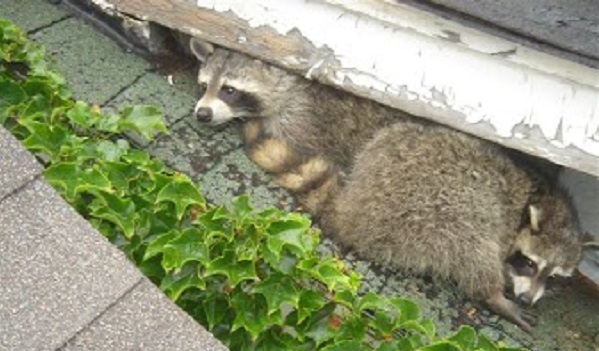Everyone knows raccoons: the masked bandits in our yards. When you wake up in the morning and find your garbage bin tumbled on its side, lid off, and contents scattered around the yard, you can be fairly certain the culprit is a raccoon. Should one set up residence on your property and become a nuisance, you need expert help with humane raccoon control Madison.
On the flip side, it can be highly entertaining watching them eat or fastidiously clean their faces afterwards. These animals are as cute as they are destructive, but do they actually serve a purpose?
A Not-So-Picky Bandit
Raccoons are highly adaptable animals. They are found in just about every ecosystem in the United States, the one exception being desert environments. These animals are just as capable of survival in the city as they are in the forest. One of the reasons for this is that they have a flexible diet. They’re omnivorous, which means that they can eat pretty much anything, and they do.
Raccoons play an important role in maintaining ecosystem health. They are scavengers and will happily feed on carrion. These mammals essentially clean up the remains of dead animals after predators are finished, much like the vultures you see eating roadkill. In addition to scavenging, raccoons are also predators. Grubs are a favorite food, but they’ll also seek out wasp larvae, rodents, small snakes and other smaller critters. In this manner, they help keep those populations in check.
With the struggles our bees have been having, one important role for raccoons is bee protection. Wasps are generally more aggressive than bees and frequently take over bee habitats, pushing them out or effectively killing them off. When the masked ranger feasts on the larvae of wasp species, it is providing a valuable service for the protection of bees.
A Free-Range Disperser
Our little masked friends get around. They may travel more than 10 miles in search of food. Adult male raccoons tend to be solitary, while females and their young live in social groups. Males establish a home territory that is approximately 250 acres. Though females range shorter distances because of their young, they do still travel to forage, scavenge and hunt.
Raccoons eat more than just meat. They feast on wild berries, fruit and nuts. Later, when they eliminate their waste, the seeds from the plants they eat are dispersed to a new area. Doing so aids in plant reproduction. Raccoons are important to maintaining ecosystem health and diversity because they assist in the lifecycles of a variety of plants.
Raccoon habits offer another benefit to the environments where they live. They are diggers, and while this can seem to be a destructive behavior, it serves an important function. Through their efforts in seeking food in the soil, they help with soil turnover. This improves aeration, which is good for plant recruitment and speeds up decomposition.
A Hunted Hunter
While raccoons are adept at hunting their prey, they are also low on the food chain totem pole. These mammals are themselves a meal for larger carnivores. Their primary urban predators are coyotes and foxes. In more rural areas, they become prey to bobcats, great horned owls and wolves. Their presence helps maintain a balance in the web of life.
A Humane Solution
We often think of raccoons either as cute and curious or as a nuisance, but they actually serve important roles within the ecosystems in which they live. When their presence does become an issue, the Skedaddle Humane Wildlife Control team in Madison ensures they will be removed safely without doing further damage to your property.
Skedaddle Humane Wildlife Control works within the parameters of the animals’ natural habits and lifecycles to ensure safe and humane removal. To find out more about our services or to request an appointment, give us a call at 608-819-9406.




